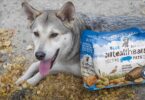Sharing food with your furry companion often feels natural. Those pleading eyes under the dinner table can make even seasoned pet owners wonder: is this safe? For many households, leftover potato dishes spark this question—especially when crispy skins cling to plates.
Cooked spuds offer nutrients like vitamin C and fiber. But their outer layers require caution. Raw varieties contain solanine, a natural toxin harmful to pets. Even baked or boiled skins may upset sensitive stomachs if overfed.
Veterinarians emphasize moderation. Small portions of plain, skin-free potatoes rarely cause issues. However, seasoned or fried preparations introduce risks like sodium overload. For safer alternatives, explore nutrient-rich options like sweet potatoes, which many pets tolerate better.
This guide unpacks the science behind these starchy snacks. You’ll learn how to balance occasional treats with your dog’s long-term health—because informed choices build happier, healthier bonds with our four-legged family members.
The Benefits and Risks of Feeding Potatoes to Dogs
When considering human foods for pets, potatoes often spark curiosity. These starchy veggies offer nutritional value but demand careful handling to avoid health pitfalls. Knowing how to incorporate them properly ensures your furry friend reaps benefits without unnecessary risks.
Nutritional Benefits for Your Dog
Plain cooked potatoes deliver vitamin C, B6, and potassium. These nutrients support energy levels and immune function. Small portions also provide fiber, aiding digestion when served occasionally.
Understanding Potential Health Hazards
Raw potato contains solanine, a toxin causing vomiting or lethargy if ingested. Seasonings like garlic or onion powder trigger anemia in pets. Overfeeding even plain varieties may lead to weight gain or pancreatitis. Watch for symptoms like drooling or diarrhea after accidental consumption.
How to Safely Prepare Potatoes for Your Dog
Preparing starchy vegetables for pets requires precision to eliminate risks while preserving nutritional value. Start by selecting fresh, unblemished potatoes free of green spots—these indicate higher solanine concentrations. Always remove sprouts and eyes before cooking, as they contain elevated toxin levels.
Effective Cooking Methods
Boiling or baking neutralizes solanine better than frying. Cut tubers into bite-sized pieces to ensure even heat distribution. Steam for 15-20 minutes until fork-tender—this softens fibers for easier digestion. Avoid microwaving, as uneven cooking may leave harmful compounds intact.
Avoiding Unhealthy Seasonings
Plain preparation is non-negotiable. Butter, salt, and spices like onion powder strain kidneys and cause dehydration. For flavor, mix cooked potatoes with vet-approved proteins like unseasoned chicken. Never serve fried skins or leftovers containing garlic, which damages red blood cells.
Chop peeled potatoes into small cubes before boiling to minimize choking hazards. Cool thoroughly to room temperature, then mix sparingly with regular meals. This approach lets pets enjoy fiber-rich foods without digestive upset. Proper technique transforms a risky snack into an occasional treat.
Can Dogs Eat Potato Skins?
Pet owners often debate whether those crispy leftovers pose hidden dangers. While not inherently toxic when cooked, these outer layers require strict precautions to avoid digestive distress or long-term health issues.
Key Safety Guidelines
Always serve skins only from thoroughly baked or boiled tubers. Raw varieties contain solanine levels that may trigger vomiting or neurological symptoms. Remove any seasoning—especially salt or butter—before offering a nickel-sized piece as an occasional treat.
Portion control matters. Limit skins to less than 5% of daily food intake. Mix small shreds with regular meals rather than serving them alone. For pets under 20 pounds, half a teaspoon weekly suffices.
Identifying When to Keep Them Away
Watch for green-tinged skins, which indicate higher toxin concentrations. Discard any potatoes with sprouts or soft spots. Symptoms like excessive drooling or lethargy after ingestion warrant immediate vet consultation.
Consider sweet potato alternatives for pets with sensitive stomachs. These provide similar fiber benefits without solanine risks. Always introduce new foods gradually while monitoring reactions.
Preparing Dog-Friendly Mashed and Baked Potatoes
Creating safe meals for pets requires understanding which human foods need special preparation. Mashed and baked varieties can become occasional treats when stripped of harmful additives. Always prioritize simplicity to protect your companion’s well-being.
Plain Mashed Potatoes: Do’s and Don’ts
Start with peeled, boiled spuds. Mash thoroughly without milk or butter—these often upset sensitive stomachs. For texture, mix in a splash of low-sodium broth instead.
Avoid all seasonings, including garlic and onion powder. Even small amounts risk blood cell damage. Cool servings to room temperature before offering a spoonful as a rare snack. Never let pets eat raw potatoes, which contain natural toxins.
Tips for Serving Baked Potatoes
Bake tubers until fully tender—undercooked pieces pose choking hazards. Remove skins unless thoroughly softened, then dice flesh into pea-sized bits. Limit portions to one tablespoon per 10 pounds of body weight weekly.
Make sure baked goods stay free of oils or toppings. Pair plain bites with lean proteins like shredded chicken for balanced meals. This approach maintains nutritional value while prioritizing long-term health.
Understanding Solanine and Oxalates in Potatoes
Potatoes belong to a plant family with hidden defenses against predators. Two natural compounds—solanine and oxalates—serve as protective mechanisms but require careful handling to keep pets safe.
What Is Solanine?
Solanine develops in nightshade plants like raw potatoes, particularly in green areas or sprouts. This toxin disrupts nerve function in animals, potentially causing vomiting or coordination issues. Cooking reduces its levels significantly, making proper preparation essential.
Oxalates: Risk Factors for Pets
Oxalates bind to minerals in the body, forming crystals that strain kidneys over time. While small amounts from cooked flesh rarely cause harm, frequent consumption of skins—a concentrated source—raises health concerns. Breeds prone to urinary issues need extra caution.
Veterinarians suggest limiting these compounds through moderation. Remove all green spots and sprouts before cooking, and avoid feeding skins regularly. If your companion shows signs like excessive thirst or lethargy, contact a veterinarian immediately.
Balancing occasional treats with their regular diet prevents toxin buildup. Always prioritize vet-approved foods as the main nutrition source, reserving starchy veggies for rare indulgences. Knowledge empowers families to make safer choices for their furry members.
Alternatives: Sweet Potatoes and Other Dog-Safe Foods
Looking for safer starch options for your four-legged friend? Sweet potatoes rank among the most vet-recommended swaps for traditional spuds. Unlike their white counterparts, these vibrant roots lack solanine and offer higher fiber levels, making them gentler on sensitive stomachs.
Benefits of Sweet Potatoes
Rich in beta-carotene and vitamin A, cooked sweet potatoes support eye health and immune function. Their natural sweetness appeals to picky eaters while providing slow-release energy. Always serve them peeled and baked—never raw—to avoid digestive issues.
For portion control, limit treats to one teaspoon per 10 pounds of body weight daily. Mix mashed flesh with regular meals or freeze puree cubes as summer snacks. Unlike recipes using garlic or onion, plain preparations maintain nutritional integrity without hidden risks.
Other safe options include steamed carrots, green beans, and plain pumpkin. Rotate these foods to diversify your companion’s diet while avoiding monotony. Remember: even healthy additions shouldn’t exceed 10% of daily caloric intake.
Consult your veterinarian before introducing new items, especially for pets with allergies. Pairing these alternatives with high-quality kibble ensures balanced nutrition while minimizing reliance on risky starches. A thoughtful dog diet prioritizes safety without sacrificing variety.
When to Consult Your Veterinarian About Your Dog's Potato Intake
Monitoring your pet’s reaction to new foods is crucial for their well-being. While occasional bites of plain baked potatoes might seem harmless, even small quantities can trigger adverse reactions in sensitive animals. Knowing when to seek professional help ensures your companion stays healthy.
Recognizing Warning Signs
Gastrointestinal distress often appears within hours. Vomiting, diarrhea, or excessive drooling signal digestive irritation. Lethargy or loss of appetite lasting over 24 hours warrants immediate veterinary attention.
Severe cases may involve tremors or difficulty breathing. Document the timing and quantity consumed to help veterinarians assess risks. Quick action prevents complications from toxins like solanine.
Consulting for Safe Diet Adjustments
Veterinarians recommend scheduling consultations before introducing starchy foods regularly. They’ll suggest portion sizes based on your furry friend’s weight and health history. For pets with sensitivities, baked sweet potatoes often serve as safer alternatives.
Gradual introduction helps identify tolerance levels. Start with teaspoon-sized amounts mixed into meals. If issues arise, replace regular spuds with baked sweet potatoes for a nutrient-rich option. Always prioritize professional guidance when adjusting your furry friend’s diet.
Wrapping Up Tips for a Safe Canine Diet
Crafting a safe diet for pets involves balancing nutrition with caution. Thoroughly cooked potatoes—boiled or baked without seasoning—offer occasional fiber and vitamins. Always discard raw spuds from the nightshade family, as they harbor solanine, a natural toxin harmful to animals.
Portion control remains critical. Limit starchy treats to 5% of daily meals to prevent digestive upset or toxin buildup. Pair small bites of peeled, plain potatoes with vet-approved proteins for balanced snacks.
Safer alternatives like sweet potatoes provide similar benefits without solanine risks. Observe companions closely after introducing new foods. Symptoms like vomiting or lethargy require immediate veterinary consultation.
Stay proactive by researching pet-safe preparation methods and prioritizing professional guidance. A mindful approach ensures furry friends enjoy varied diets while avoiding hidden dangers in common human foods.
FAQ
Are potatoes toxic to pets?
Cooked plain potatoes aren’t toxic, but raw ones contain solanine, a compound harmful to dogs. Green-tinged skins or sprouts also pose risks due to higher solanine levels. Always remove these parts before feeding.
What’s the safest way to serve mashed potatoes?
Mash boiled potatoes without butter, milk, salt, or seasonings. Dairy and additives can upset a pet’s stomach. Stick to small portions as an occasional treat.
Can sweet potatoes replace regular potatoes in a pet’s diet?
Yes! Sweet potatoes are rich in fiber and vitamins like A and C. Bake or boil them plain, and avoid sugary toppings. They’re a healthier alternative for most pets.










Leave a Comment